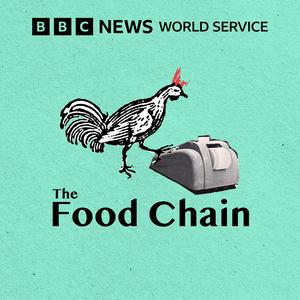What’s the purpose of restaurant reviews? The Food Chain looks at who is qualified to write a review, how helpful they are today and the impact they can have on a business. In this programme Ruth Alexander speaks to Giles Coren, restaurant critic for The Times newspaper in the UK, Opeyemi Famakin, online reviewer and influencer in Nigeria, and Ana Roš, chef and owner of the Hiša Franko restaurant in Slovenia which holds three Michelin stars. If you would like to get in touch with the show, please email:
[email protected] Presenter by Ruth Alexander. Produced by Beatrice Pickup and Bisi Adebayo. (Image: from left to right, Giles Coren, Opeyemi Famakin and Ana Roš. Credits: BBC, Opeyemi Famakin and Suzan Gabrijan)

